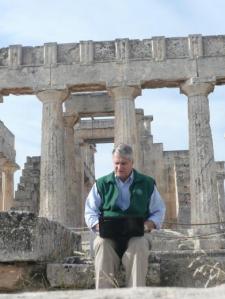





Featured Review:
Excellent teacher
Irene, 41 lessons with ClarkClark N was able to bring confidence back into my son. He now looks forward to his classes and went from failing to passing with As! Clark N takes his time and works at the speed of the student instead of rushing thru the material. He also has a very flexible schedule and seems to always be available to help my son. Highly recommended!
I am an experienced high school physics and mathematics teacher, retired, with Massachusetts certification in both areas. I am very much aware of the challenges many students face in their...
Loading...
Clark has provided examples of their subject expertise by answering 63 questions submitted by students on Wyzant’s Ask an Expert.
Excellent teacher
Clark N was able to bring confidence back into my son. He now looks forward to his classes and went from failing to passing with As! Clark N takes his time and works at the speed of the student instead of rushing thru the material. He also has a very flexible schedule and seems to always be available to help my son. Highly recommended!
Irene, 41 lessons with Clark
Expertise and patience
It is wonderful to have a tutor who is both patient but also clearly has mastered the topic. His skilled technique and careful guidance is exactly what my son needs right now.
Angela, 13 lessons with Clark
awesome extremely knowledgeable and patient
Exactly what I Was looking for extremely knowledgeable and easy to work with. Glad I found him would definitely highly recommend 🙏
Rowan, 9 lessons with Clark
Favorite tutor
well knowledgeable and has an art for explaining material in a simplified manner. Highly recommend Clark. He is patient, flexible, and honest. If he isn't familiar with something, he takes time to educate himself on it outside of wyzant so that he doesn't waste your time. Clark also explains the material in many different ways to ensure that he teaches you the way you learn.
Claire, 5 lessons with Clark
Very knowledgeable and helpful
Clark helped my child enjoy physics. He explains clearly and can easily motivate a student because he has had an amazing career in that field. Excellent teacher!!!!!¡!!!!!!!!!!!!!!!!!!!!!!!
Pascale, 66 lessons with Clark
the best tutor for math and physics!
I can easily and without hesitation say that Clark is the reason I passed calculus in high school and college physics (and got an A in physics in college). Math is not something that comes easy to me and before I started to work with Clark I had lots of trouble in my high school calculus class. However Clark helped me to understand the processes and methods much better and I ended up getting a 4 on the AP calc BC exam. In college I have to take physics and I was really afraid of approaching it. However Clark made physics make sense, and on top of that he has some interesting anecdotes he talks about when working on physics (he worked a lot in physics related fields). I ended up getting an A in physics, in a large undergraduate course where many struggled. I am currently working with Clark on calculus, and I plan on continuing to do so and then working with him when I have more physics classes to take. I also will testify that Clark definitely has experience teaching and knows how to teach. As far as I’m aware he has a masters in education and has taught several courses before and it definitely shows as he just knows how to explain stuff. Anyways looking forward to my next session with him.
Carla, 43 lessons with Clark
Engaging, thoughtful and highly effective
Clark is working with my high school Algebra honors student. Clark is extremely organized, engaging and thorough. We are off to an excellent start and look forward to seeing the results of this partnership.
Marissa, 4 lessons with Clark
Fantastic Tutor
We have been working with Clark for a long time and he is a fantastic tutor, he understands our child and how to best instruct him. He is very knowledgeable, patient, and flexible. He is one of the best!
Jose, 155 lessons with Clark
Knowledgeable and patient
Clark is working with my daughter on physics. She does not have a science background, and is struggling. He is breaking it down so that she can understand it well, while building up her confidence. He clearly understands the material very well, and can describe it in multiple ways.
Laura, 4 lessons with Clark
So easy to work with, thanks.
I had some basic math questions related to astronomy and Clark was very helpful and welcoming. I didn't know how to use a scientific calculator and Clark showed me that it wasn't even needed for the work I was doing!
JUNE, 1 lesson with Clark